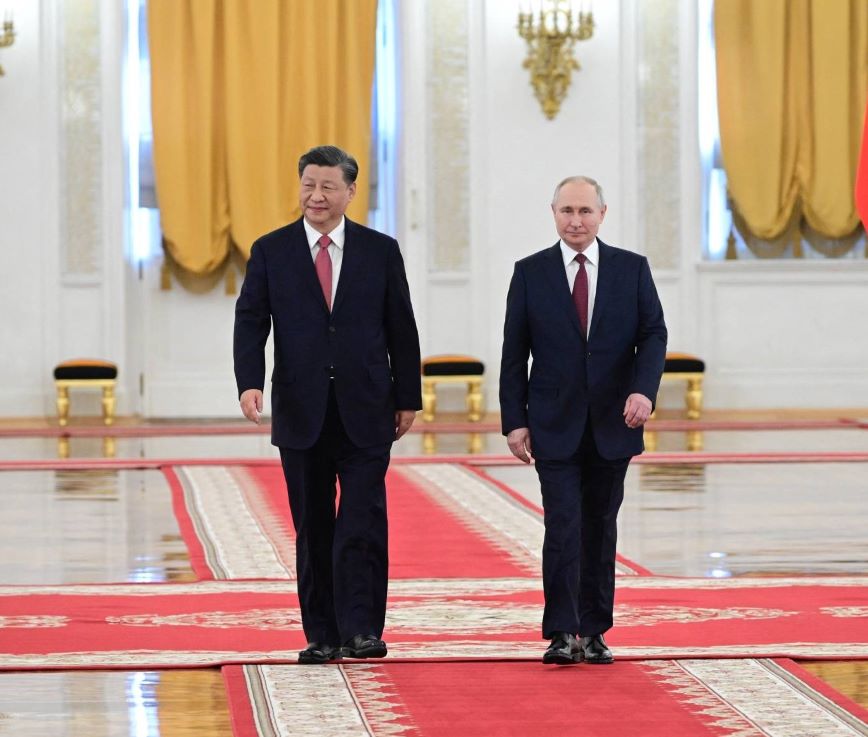Chinese expert on why Russia is set to lose in Ukraine
The Russian Federation may look successful on the Ukrainian battlefield right now but it will ultimately lose the war, a Chinese scholar with expertise on Russia says in an interview to the Economist.
According to Feng Yujun, doctor of law, professor at the Peking University and formerly vice dean at the Institute of International Studies, there are four factors that will influence the course of the Russo-Ukrainian war.
More to read:
Why Russia and China fought a brief war half a century ago
The first is the level of extraordinary resistance and national unity among Ukrainians, who busted the myth that Russia was invincible. Another factor is the international support for Kyiv, which is still strong in spite of recent pauses in military and financial aid.
The next one is the nature of modern warfare, which depends on a combination of industrial might and command, control, communications and intelligence systems.
“One reason Russia has struggled in this war is that it is yet to recover from the dramatic deindustrialization it suffered after the disintegration of the Soviet Union,” reckons Feng Yujun, who was also the director of the Center for Russian and Central Asian Studies at the Fudan University in Shanghai.
The final factor is related to information:
“When it comes to decision-making, Vladimir Putin is trapped in an information cocoon, thanks to his having been in power so long.
The Russian president and his national-security team lack access to accurate intelligence. The system they operate lacks an efficient mechanism for correcting errors. Their Ukrainian counterparts are more flexible and effective,” the outlet quoted the Chinese scholar as stating.
In combination, these four factors make Russia’s defeat inevitable, he emphasized.
In his opinion, Russia will be forced to withdraw from all occupied Ukrainian territories, including Crimea. He also stressed that Russia’s nuclear capability will not guarantee its military success.
The ongoing war is a turning point for Russia, the professor believes. Unlike Ukraine, it has gone through numerous social and political turbulences over the past two years – the Wagner uprise; international isolation and sanctions; ethnic tensions in several regions; terror attacks - all of which could destabilize the vast country.
The neighbors that were part of the Soviet Union until its dissolution in 1991 now distrust Russia for multiple evidence of its imperial ambitions, distancing themselves from Moscow politically and economically and looking for allies elsewhere.
Speaking of China, Feng Yujun said that Beijing’s relations with Moscow are not fix and much of the bravado about mutual support and partnership is pure diplomacy. Although China has not joined Western sanctions against Russia, it has neither violated them systematically, he noted.

Xi Jinping and Vladimir Putin at a meeting in Moscow. Credit: Kremlin.ru
It’s true that China promised a “no limits” stance on Russia before the war, but its message has since then transformed into a more pacifist narrative - “non-alignment, non-confrontation and non-targeting of third parties,” the expert claimed.
In the Ukraine dispute, China is calling for negotiations while Russia insists on a military resolution; the two countries are very different, he added.
More to read:
China absorbed record volumes of Russian oil in first half of 2023
If the conflict becomes frozen – given the lack of success on either side of the frontline – Russia will use the pause to rearm itself and launch new wars, putting the world in even greater danger, according to the professor.
The Russo-Ukrainian conflict is a post-cold-war watershed that will have a profound, lasting global impact, the scholar notes, predicting among others the reorganization of the UN Security Council, where more countries would become permanent members (Germany, Japan, India) and the abusively-used veto power would be removed.
***
NewsCafe is an independent outlet that cares about big issues. Our sources of income amount to ads and donations from readers. You can support us via PayPal: office[at]rudeana.com or paypal.me/newscafeeu. We promise to reward this gesture with more captivating and important topics.






![[video] Kawasaki unveils Corleo, a hydrogen-powered robotic horse with AI management](/news_img/2025/04/11/news2_mediu.jpg)
